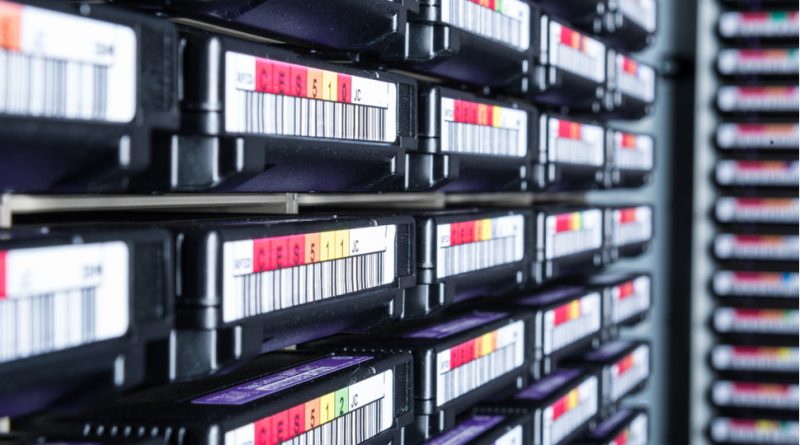FUJIFILM LAUNCHES SUSTAINABLE DATA STORAGE INITIATIVE TO DRIVE SUSTAINABLE PRACTICES IN DATA STORAGE
The sustainability initiative will raise awareness of the environmental impact of data storage
New research from IDC reveals that, globally, data centers can reduce CO2 emissions by over 43%, or 664 million metric tons
FUJIFILM Corporation announced the creation of the Sustainable Data Storage Initiative to highlight how tape technology can significantly reduce electricity consumption and CO2 emissions related to data storage. The initiative launches with a white paper, Accelerating Green Datacenter Progress with Sustainable Storage Strategies, published by technology research firm IDC, and sponsored by Fujifilm, providing an in-depth analysis of the significant energy savings and resulting environmental benefits of moving more data to tape storage.
“We’re proud to launch the Sustainable Data Storage Initiative to help spread awareness of today’s modern data tape technology as a solution to reducing CO2 emissions from data storage operations while simultaneously reducing costs,” said Hironobu Taketomi, President, FUJIFILM Recording Media U.S.A., Inc. “Beginning with this study, Fujifilm’s global initiative will help companies around the world make smart decisions when assessing their storage options with sustainability objectives in mind.”
As the world faces a climate crisis, and the amount of stored data continues to grow unabated due to digital transformation and the development of next-generation technologies, data centers are under increased scrutiny for consuming large amounts of energy that result in increased CO2emissions. The goal of the Sustainable Data Storage Initiative is to spread awareness of the solutions that can reduce the environmental impact of data centers.
The IDC whitepaper summarizes findings on how to enhance the sustainability of data storage. Following are key highlights from the paper:
Description automatically generated reporting from several major data centers found that energy consumption increased by 31% from 2017 to 2020, and the amount of data stored in data centers is expected to grow by 27% each year through 2025 (see Figure 1).
Relying on renewable energy alone is not enough to keep up with rapid growth in data center power consumption. Water, wind, and solar power also have their associated impacts on the environment (i.e., disposing of wind turbines and solar panels).
To negate this growing issue and protect the environment from further damage, IDC estimates that strategically migrating more data storage to tape can reduce CO2 emissions by 43.7%, or 664 million tons, by 2030 (see Figure 2).
Tape storage offers additional security benefits such as immutability, encryption features, and offline “air gap” protection against cybercriminals.
Tape is the most cost-effective storage media on a cost-per-gigabyte basis, requires minimal power to operate, and is reliable for storing data for periods exceeding 30 years with an excellent bit error rate (BER).

